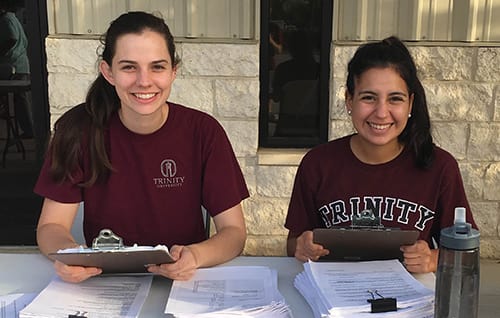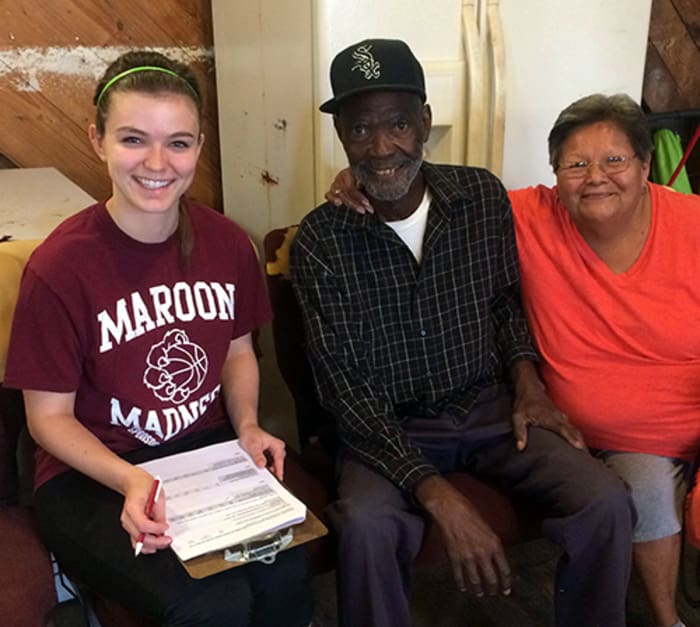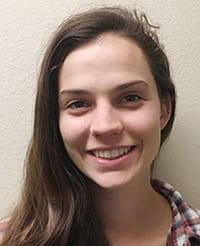This project is now in update mode. Check back regularly to see how things are progressing.
Food Matters: Eating Disorders and Food Insecurity
Being hungry is never fun. It is that much worse when hunger is a regular part of life because you suffer from food insecurity.

Although many researchers have investigated food insecurity from a variety of perspectives, the aim of THIS research is to investigate unexplored questions regarding eating disorders in populations that previously have been understudied. We also seek to train the next generation of undergraduate students in conducting high quality applied research and to help advance underrepresented students with their career aspirations.
You might not think that eating disorders and food insecurity go together. If you look at the current research literature your belief would be supported by the lack of studies investigating possible links between eating disorders and food insecurity. And yet, there are very good reasons to think that these problems are connected.
For instance, famous research conducted around the time of World War II by Ancel Keys demonstrated that some healthy people who undergo periods of food restriction develop symptoms that we now know are part of eating disorders, such as binge eating.
Our research project consists of three phases:
Phase I: Initiated during the summer of 2016, this phase investigated if those who are impoverished and food insecure do in fact report higher levels of eating disorders than the general population. Preliminary results suggests that almost 1 in 5 of those with the highest levels of food insecurity have an eating disorder (Taylor, Johnson, Middlemass, & Becker, 2016).
Phase II: With your support, we will launch research in 2017. More specifically, this phase will involve undergraduate students conducting in-depth interviews as well as longitudinal research in collaboration with food insecure, marginalized populations. This phase will investigate the link between eating disorders and food insecurity in greater detail so we can develop the necessary understanding to implement Phase III.
Phase III: This phase represents the long term aim of this program of research, which is to collaboratively develop cost effective interventions that can be delivered in community settings.

The Impact
Your gift will impact lives in the following ways:
1. Undergraduate students will gain critical experience conducting high quality research, which lays a foundation for the next phase of their education.
2. This research represents an important first step in addressing the needs of a marginalized population. To date, those with food insecurity have been underrepresented in the eating disorders research literature and in broader discussions of eating disorders treatment. With your generous gift, our goal is to begin to address this oversight.
3. By recruiting underrepresented students (i.e., minority and first generation) to this research project, we aim to respond to recent calls to increase the diversity of the eating disorders profession.
Why is your gift important?
Your gift directly funds the following:
-
Provides stipend and housing support so a student can work full time over the summer on this project.
-
Provides necessary support for project expenses such as participant incentives and interview transcriptions.
-
Supports undergraduate student travel to national conferences to present findings from the research project.
Your gift is the difference between just asking a question versus finding an answer that can impact the lives of marginalized populations AND launch a student’s career.
Additional Team Members
Hi, my name is Jessica Cruz and I am a senior Psychology and Political Science major from Virginia Beach, Virginia. Currently, I serve as the Teaching Assistant for Constitutional Law at Trinity University where I help students better understand the different Supreme Court cases. Previously, I interned for the City of San Antonio, International Relations Office, where I researched various city policy regarding internal affairs in addition to organizing visiting delegations. I have recently joined the Food Matters Lab, where I will assist with data collection and running participants. After graduation, I plan to pursue a career in federal government focusing on the nexus between international and domestic politics, specifically the way these interactions can and may affect people throughout the United States. I also hope to earn a master’s degree in Public Policy.

Hi, my name is Clara Johnson and I am a senior psychology and Spanish major from Menlo Park, California. I have been involved in the research since my Sophomore year and am dedicated to the study of psychological prevention and outcomes. Currently, I work at the rape crisis center on the online hotline, at the Refugee and Immigrant center for Education and Legal Services (RAICES) as an intern for the Refugee Advocate Program, and in the Food Insecurity Lab as the lab coordinator. In the lab, I help manage data collection, communicate with local partner agencies, and analyze the data. After graduating in December of 2016, I hope to conduct research on treatment and prevention of PTSD related to sexual assault. My ultimate career goals are to get my PhD in clinical psychology with an emphasis on PTSD and eating disorders.

Hi, my name is Sarah Parrish and I am a graduating senior from Houston, TX majoring in Psychology. I currently work for the Rape Crisis Center of San Antonio on the online hotline and as a research assistant in the Food Insecurity lab at Trinity University. As part of the lab, I help collect, enter and analyze data. I ultimately hope to go to on to graduate school to earn my master’s degree in Clinical Psychology, focusing specifically on PTSD, depression and eating disorders: I anticipate working primarily with veterans and survivors of sexual assault.

Hi, my name is Alexandra Gamboa and I am a senior Psychology major from Corpus Christi, Texas. Previously I worked for two semesters in the Children’s Research lab at Trinity University on various projects centered on the study of verb acquisition in children of two to four years of age. Currently, I work in the Personality Disorders Research lab at Trinity where I am working on a meta-analytic project looking at the whether the efficacy of Dialectical Behavior Therapy extends past treatment of Borderline Personality Disorders to other mental illnesses. My contributions to this meta-analysis include screening full-text articles for inclusion as well as data extraction, processing and analysis. In search of gaining more experience in clinical psychology, I am joining the food insecurity project where I will be aiding in data collection and analysis. After graduation I plan to pursue a master’s degree in clinical psychology in order to gain appropriate training to become a licensed professional counselor. Ultimately I hope to work with minority groups searching out treatments for mental illness.
Hi, my name is Autumn Sutherland and I’m a first generation college student majoring in Psychology and minoring in Religion. I’m currently involved in the Student Conduct Panel, Voix: The Women’s Choir, the Black Student Union, and the First Generation and Underrepresented Student (FGUS) Program. I’m from Memphis, TN where I was was raised in a military family that emphasized that life should have purpose and meaning. Early on, I took an interest in Psychology as a result of experience with my father’s psychological trauma from his service in the Gulf War. This led me to strive towards becoming a Clinical Psychologist in the area of trauma. I’ve always wanted to contribute positively to society and make an impact which is why I’m so passionate about this study on food insecurity. It is very unfortunate that some in our society go hungry or worry about where their next meal will come from. I am excited that this study will take preliminary steps in better understanding and addressing the psychological outcomes of such experiences.
Additional Information
We would like to thank the San Antonio Food Bank for their ongoing contributions to this program of research. Thank you to the Trinity Psychology Department as well as the Trinity Political Science Department. We would also like to thank the HEB Grocery Company, the McNair Scholars Program and the TU Murchison Summer Research Fellowship Program for their generous support of Phase One of this research program.
For additional information please contact Dr. Carolyn Becker or Dr. Keesha Middlemass.
Share This Message
Help the TU Food Insecurity Lab change the lives of students and those in the SA community.
Food Matters in San Antonio: Help TU students create change.
Watch, Give, Share
#FoodMatters
#MarginalizED Click here for more information
#EatingDisorder
#EDShiftCampaign
Thanks For Your Support
Thank you for your support of our project. We greatly appreciate each and every donation in helping us advance our mission.
$1,000
Attend a Conference
Funds travel costs for one student to present at a research conference
$2,500
Half a Summer of Research
Funds basic costs (e.g., room and board, stipend) for one student to conduct research for half a summer
$5,000
A Summer of Research
Funds basic costs (e.g., room and board, stipend) for one student to conduct research for an entire summer
$8,300
A Year of Research
Funds all research costs for a student for the entire year including summer (i.e., summer housing & stipend, travel to a conference to present, and costs of conducting research including participant incentives, interview transcription etc...)








